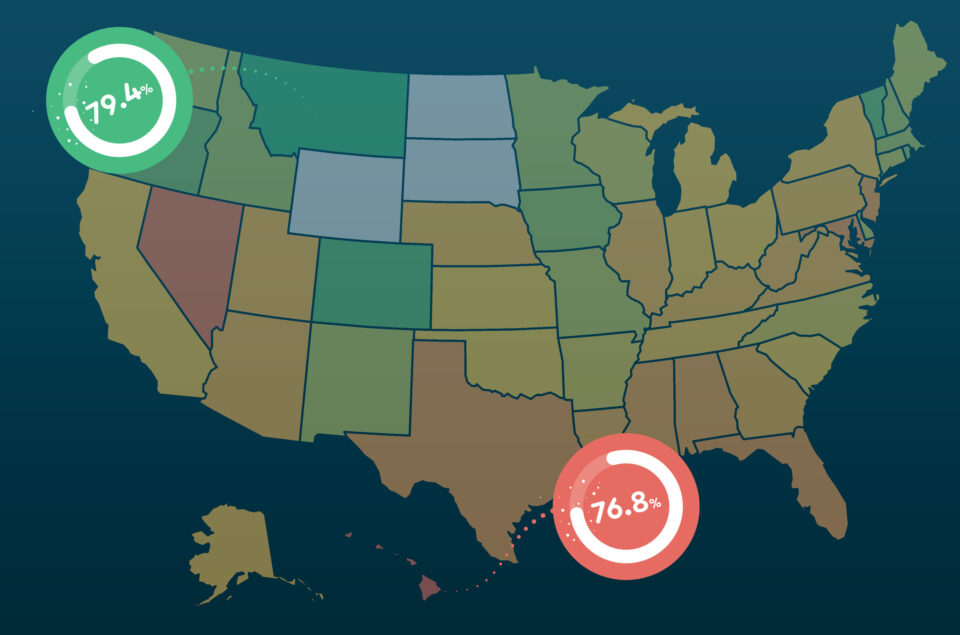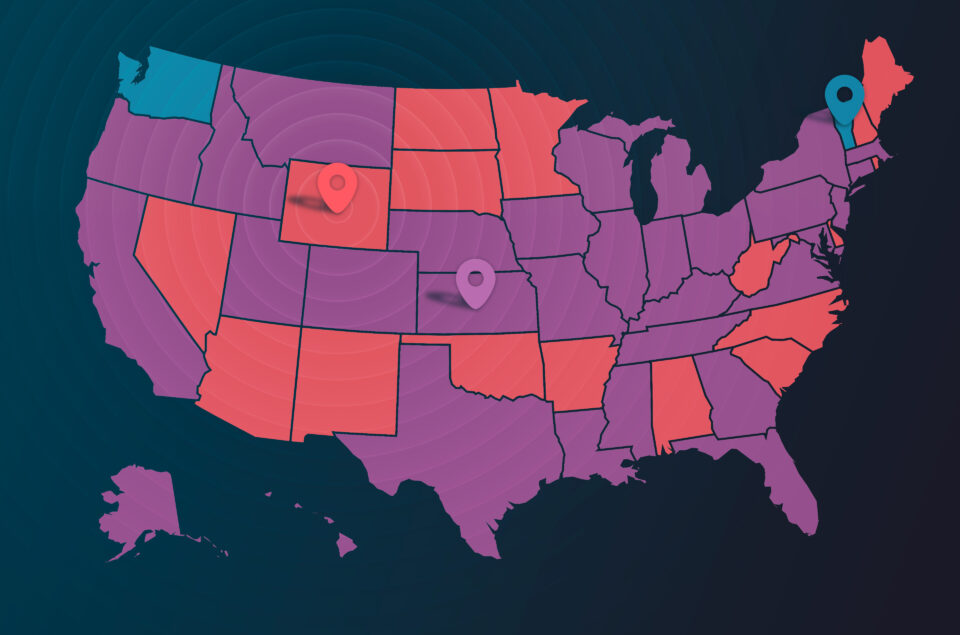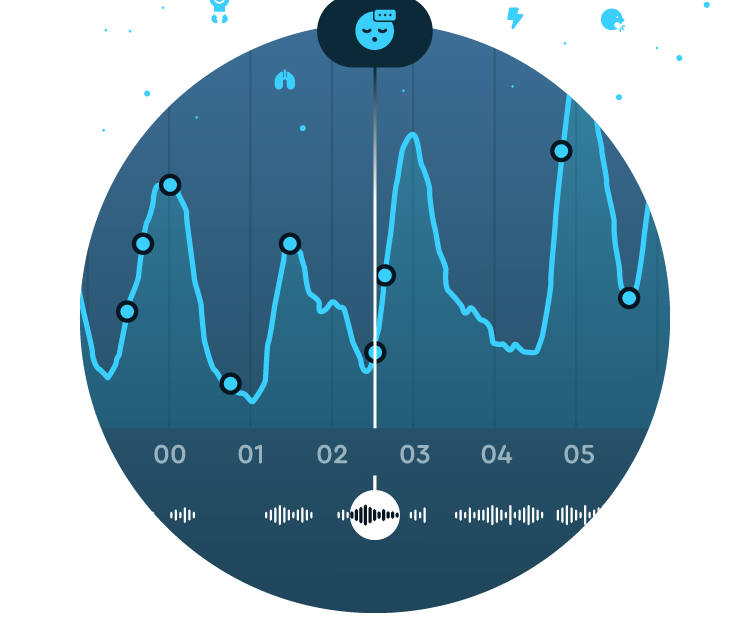As Christmas approaches, we speak increasingly of the stress associated with the holiday, bad food choices, and poor sleep. Headlines this time of year often focus on the perceived lack of sleep, pointing to links between holiday stress and poor quality sleep. With Christmas around the corner, we dig deeper into Sleep Cycle’s data from 2020 to see what happened to our sleep during the festive season last year and what we perhaps can expect this year.
Part and Parcel of Christmas
Holidays, especially traditional ones such as Christmas, is a time often charged with expectations, family get-togethers and indulgence. In 2018, Sleep Cycle wrote an article where a group of 1000 U.S. adults was surveyed, with the headline: ‘Parents sleep less and drink more during the holidays. It is generally assumed that the holidays simply equate to less and poorer sleep quality, especially for parents. However, last year was unique due to the COVID-19 pandemic which most likely played a part in how we slept around Christmas. Regardless, there are some recurring themes that are often mentioned as an accomplice to poor sleep at Christmas:
- Food – few things bring us together more than food, over Christmas. The tradition of a shared meal, memories of meals shared and family recipes followed to the last letter. Overindulging at Christmas dinner however can make it difficult to sleep comfortably. Sugary foods and meals loaded with heavy carbs and fat can put a strain on the digestive system. Several studies also show links between insomnia and indigestion. However the ceremony of a joyful festive meal shared with your closest family and friends can also act as a calming ritual before bedtime.
- Stress & Depression– Christmas, despite its joys, can be a source of stress for many. A common sign of stress can include sleep problems and although stress in small measures is part of every healthy person’s preservation mechanism, too much of it can lead to anxiety, which in turn can affect sleep. Christmas can sometimes also lead to increased financial strain, yet another source of stress. Finally, Christmas can also exacerbate feelings of depression and stress, caused by a range of reasons, such as loneliness or the pressure of having to enjoy christmas.
- Sleep routine and regularity – maintaining regular sleep hours during Christmas is often a challenge as both social events and late nights are often an inevitable part of this holiday.
- Family – For some, there is nothing better than to gather the family together for this special occasion. For others though, the extended family gatherings at Christmas can be a major source of anxiety.
Observance of Christmas
As we drilled down into Sleep Cycle’s data from 2020 to observe sleep patterns during Christmas and the days leading up to the main event, we also had to factor in differences between how Christmas is observed across countries and would therefore perhaps impact whether there was any significant change to a person’s sleep pattern during those days.
In Japan, for example, Christianity is a minor religion (only 2% of the population) and thus Christmas is an imported tradition that has only gained traction in recent years. December 24th or Christmas Eve in Japan is still associated with love. On this evening, in particular, young Japanese couples celebrate by declaring their love and exchanging gifts.
In Russia, The Russian Orthodox Church observes the Gregorian calendar, hence Christmas celebrations are held from January 6th (Russian Christmas Eve) – January 7th (Christmas Day).
The Nordics also stand out as their main Christmas celebration occurs on December 24th. The reason Sweden, Norway, Denmark, and Finland all celebrate on Christmas Eve dates back to ancient ways of counting time, where the day would be considered to begin after sundown – after 6 pm.
Sleep Cycle Analysis
Taking a closer look at sleep survey data around Christmas in the U.S., Canada, Brazil, U.K, Germany, France, Spain, Netherlands, Sweden, Australia, and New Zealand we found that on Christmas Eve (December 24th) the result showed that:
- Average ‘Sleep Quality’ – dropped for most countries when compared to both their yearly average and the days leading up to Christmas Day. This might not be as surprising as sleep routines might have fluctuated during this holiday and that both anxiety, stress and excitement before Christmas Day may have played its part.
It’s important to bear in mind that this result shows Christmas Eve, and not Christmas Day (December 25th), which is the main day when most countries celebrate Christmas (except for Sweden).
The results – contrary to perhaps what was expected – then showed some sleep improvements on Christmas Day:
- Average ‘Sleep Quality’ – was about 2-6 percent higher for all countries compared to both their 2020 average, the average for days leading up to the event and the Christmas Eve before the event.
- Average ‘Time in Bed’ – was about 15-60 minutes longer for all countries compared to both their 2020 average, the average for days leading up to the event and the day before the event. Possible factors for this may be that most countries enjoy public holidays during Christmas which enables a later wake-up time (average wake-up times are about 30-60 minutes later compared to their 2020 average) and that many possibly want to catch up on their sleep after the demands surrounding Christmas.
- ‘Mood’ – stayed on similar levels throughout 2020.
- ‘Stressful Notes’ – the average of sleep notes with ‘stressful day’ significantly decreased for all countries compared to both their 2020 average, the average for days leading up to the event and the day before the event except for Sweden where it roughly stayed the same throughout.
To summarize, Sleep Cycle’s data shows fairly consistent patterns of sleep behavior during this holiday in countries where there is a dominant Christian majority and Christmas is celebrated and observed in similar ways. Overall, the average sleep quality was about the same during the days leading up to the event as throughout the year. However, on Christmas Day, we actually saw an increase in sleep quality (perhaps no surprise given longer sleeps), time in bed and less self-assessed ‘stressful day’ notes compared to both 2020 overall, the days leading up to Christmas and Christmas Eve. Although further research is needed to draw any certain conclusions – it’s an interesting perspective nonetheless, that Christmas may not always be the sleep disruptor many assume it to be. Or put another way, the many challenges we may face in the run-up to Christmas, doesn’t need to manifest themselves in poor sleep come the night of the big event.
Data limitations: the measurement period is from 2020, a year with an ongoing pandemic, which most likely affected the sleep data in many ways. Mood- and stress data are self-assessments. Finally, it is important to point out that the data is only a representation of people that have voluntarily agreed to be a part of our sleep survey.










